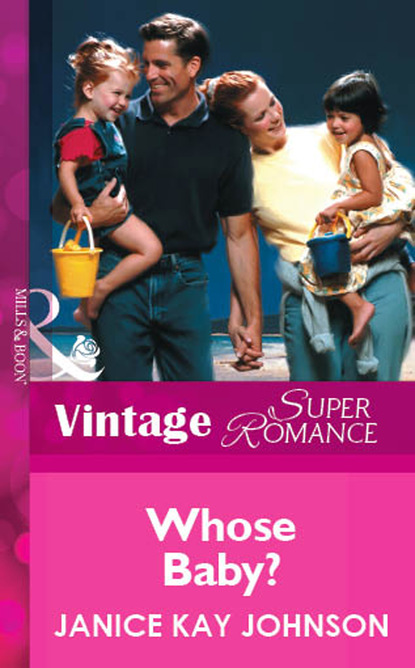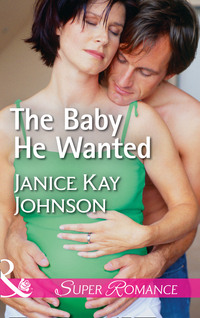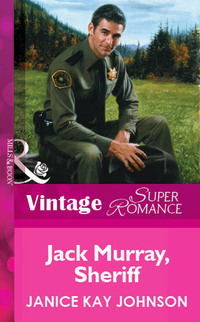
Полная версия
Maternal Instinct
More practically, the possibility still existed that there had been accomplices, or even that Gann had been misidentified and the real killer had walked out with the survivors. Terrified people weren’t the best witnesses. Nell remembered the body outside the elevator upstairs. The man had been middle-aged, middle height, brown haired, ordinary. Bizarrely, considering his mission, he’d worn a business suit indistinguishable from those worn by his male victims. Could a frightened claim rep diving for cover behind her desk be positive that Gann was the one spraying the office with automatic fire?
The captain let them go just before midnight and sealed the building. A smaller cluster of press still camped out on the sidewalk, but he waved his officers toward the lot and faced the oncoming horde. “It’s been a tough two days,” he said. “Sleep in an hour tomorrow. See you in the briefing room at eight sharp.”
“Big of him,” someone muttered behind Nell, on the way to the squad cars.
“I, for one, am going to be damn glad of that extra hour,” Hugh said, close beside her.
“Me, too,” she admitted, stifling a yawn, too tired to care that she could feel him breathing down her neck.
He opened his door, but paused to look back at the dark bulk of the Joplin Building. A crescent moon floated above it. Camera flashes went off as the captain apparently made a brief statement in front.
“I feel like a condemned man,” Hugh said, in an odd voice. “We’re going to spend half our working lives in there.”
She nodded, although he wasn’t looking at her. “The atmosphere is so…oppressive. No, creepy.” She shivered. “They say tragedies can soak into the walls and leave a trace presence. Do you believe that?”
He turned and stared at her over the roof of the car. “No. Damn it, don’t you know better than to let yourself think like that?”
She scowled back. “You can’t tell me this one didn’t hit you hard, too. Why else did you—” She almost strangled herself as she swallowed the rest of that sentence. Why else did you get drunk? Screw me? Forbidden topic.
“Of course it was upsetting.” His brows met in a forbidding line. “Contrary to your opinion of me, I do feel some normal human emotions. But I’ve seen too many crime scenes to start imagining shock and terror soaking into walls, for God’s sake.”
“There are places,” she defended herself.
They were damn near alone in the dark parking lot now.
“This isn’t on the scale of Auschwitz. Let’s not kid ourselves.”
She gritted her teeth. “Then what were you talking about? Feeling like a condemned man?”
“We’re grunts in there. You and I aren’t even cogs in the machine. We’re oil that makes the cogs turn a little smoother. We aren’t doing anything. Not anything useful. I want back on the street. I like action. If I’d chosen to spend my life with a tape measure in my hand, I’d be a carpenter.”
Why had she, for even a second, thought him capable of sensitivity to suffering or nobility of purpose? He was a five-year-old boy, who wanted to be outside bashing his toy trucks into each other.
As tired as she was, she wanted to throw up her hands and get in the car. Stubbornness made her argue. “But this is important. It’s the biggest crime that’s ever been committed in Port Dare. That ever, God willing, will be. Don’t you want in on that?”
“The slug is dead. There’s nothing to solve.” He shrugged and got in behind the wheel.
She climbed in and buckled her seat belt. “Is it? Are we so sure this Jack Gann was the shooter?”
“We’ve got so damn many witnesses, we don’t know what to do with them.”
“They were scared.”
Rocketing out of the parking space too fast, he said, “Captain says half a dozen pointed their fingers.”
“When showed a dead man who looked like the assailant.” Why was she arguing? There wasn’t any good reason to think this Gann wasn’t the shooter. She just believed in being sure. “Did you notice how little there was to distinguish him from half the men pouring out of an office building like this at five o’clock? I saw his face yesterday. I can hardly remember it now.”
“We were all shell-shocked by then.”
“So were those witnesses,” she reminded him. “Worse.”
He was quiet for several blocks. When she stole glances at his profile, it was to see his deep frown relaxing. “Yeah, I’ve thought about all that,” Hugh admitted. “Fingerprints will settle it for us.”
“I guess they will. Once Ballistics figures out which guns killed which victims.”
He grunted agreement. “I don’t envy them, but at least they’re doing something meaningful. I still say you and I are grunts. We’d do more good preventing the next crime.”
They pulled into the dark concrete garage beneath the station. Tires squealed somewhere on the floor above them.
“Where’s your car?” Hugh asked. “I’ll drop you off.”
She was reminded uncomfortably of the last time he had done this, but chose not to make an issue of it. “Back corner.”
He braked behind the Subaru wagon. “See you in the morning.”
Another yawn cracked her jaw. “Night.”
“You didn’t want to work with me, did you?”
The unexpected question startled her. Halfway out, she twisted around to see his face in the light from the overhead lamp. Nell considered and discarded several answers, but was too tired to prevaricate. “No,” she said. “We haven’t exactly hit it off.” Except in the back seat of his Explorer. “I can’t have been your first choice, either.”
“No. I don’t like to analyze everything.”
“Whereas I don’t want to be the kind of cop who blindly follows orders and doesn’t understand that he or she sometimes has moral decisions to make.”
He grunted. “Like letting an old lady drive away even if she is going to kill somebody sooner or later?”
“No.” Her patience was ebbing. “But how can we serve if we don’t try to understand the people we’re serving? How do you negotiate a way out of a domestic call gone bad if you don’t have a good idea what’s going through the guy’s head, or the wife’s? What’s she going to do? Why’d he go off the deep end right now? What’s riding him? You won’t make detective if you’re unwilling to explore human nature.”
“Detectives sit behind their desks,” he said carelessly. “I’ve turned down promotions.”
Disgusted, she said, “Yeah, I forget. You have connections.”
His eyes narrowed and his voice went silky quiet. “My brothers have nothing to do with my career. They know better than to interfere.”
“Then what? You want to ride patrol for the next forty years? Walk into holdups at convenience stores for your big excitement?”
Something she hadn’t expected to hear from him, of all people, was real passion. But there it was, a vibrant thread in his voice, despite the lateness of the hour and his hoarse tiredness. “What we do is real police work. We’re the ones first on the scene, the ones who come when people call. I care about what I do. I don’t see it as an unpleasant duty on the way to better things.”
Stung by the scathing tone of the last, she said quietly, “I don’t either.”
“No?”
“I’m curious,” she admitted. “I haven’t been involved in a murder investigation before. So I’m a grunt. I can see how the detectives work.”
Suddenly he shook his head. “I don’t know why I started this. Go home.” He looked ten years older than he had nine hours ago.
Nell hesitated, then got out of the squad car. “Good night,” she said stiffly, and slammed the door.
The car didn’t move, and she realized he was waiting chivalrously until she was safely in her Subaru and had started it. Pulling out her keys, she thought maybe he was gentleman enough to keep his mouth shut.
Her drive home wasn’t half a mile. Five years ago, she’d managed to save enough to put a down payment on a 1920s era two-story house in Old Town. The lot had consisted of weeds and a rotted picket fence; the house hadn’t been updated since the fifties. She’d paid for new wiring and plumbing and converted the top floor into a separate apartment, rented out to cover the mortgage. Friends had helped, but most of the labor of stripping woodwork, sanding and painting had been hers. She was proud of her little house. Single mothers didn’t have it easy.
Especially ones who gave birth at sixteen and had no support from the baby’s father. The day they released her from the hospital and handed a swaddled Kim to her, she’d gone home to her mother’s, but she’d known she couldn’t stay. She had never in her life, before or since, been so scared. Sometimes life wasn’t a bed of roses, but every single time she pulled into her driveway she felt a surge of pride that she’d come this far.
Owning a house was a symbol to her of the life she’d built from nothing.
The front porch light was on, as was the light over the stove in the kitchen. On the stovetop lay another note written in her daughter’s still childish hand: “If you’re hungry, Mrs. Cooper sent home a bowl of spaghetti. I told her you don’t take meal breaks when you’re into work. Also, I got bored tonight and made some banana bread. See, I even cleaned up! Love you, Kim.”
More tears threatened. Nell grabbed a paper towel and blew her nose firmly. She was an emotional mess today. Not that it hurt to appreciate what a good kid Kim was. Despite all of Nell’s worries, she knew her daughter was unselfish, kindhearted and mostly sensible.
After throwing away the paper towel, Nell took the plastic bowl of leftover spaghetti out of the fridge and stuck it in the microwave. She was starved. She just hadn’t realized it. Hugh hadn’t suggested a meal break and it hadn’t occurred to her that she needed one. At some point her stomach had settled its differences with the beer, thank goodness.
She sliced banana bread, buttered it and poured a glass of milk while she waited for the microwave to beep.
What a day, she thought, carrying the heated spaghetti to the table a moment later.
She tried not to think about the night before. It had been stupid, but she was human. Lesson: no more than one drink. Ever.
Better yet, don’t drink at all.
While she ate, her mind flitted from the crime scene and the shooter with the hole in his temple to the half a dozen minor arguments with McLean that had filled any empty nook in their shift. Why him? she asked herself in disbelief. Why not somebody, anybody, else? She hadn’t liked him by reputation, and she’d liked him even less after they’d worked together a couple of times.
Nell wanted to conclude that she didn’t like him any better now, but believed in strict honesty. He’d been…decent today. No leers, no innuendoes, no murmurs and grins with his buddies. He’d let her see a few moments of vulnerability, he’d been considerate in driving her to her car that morning, and he’d been efficient and fair-minded on the job even though he had apparently been chafing at their roles.
Maybe she’d survive their partnership. Maybe she could even forget what had happened in the back seat of his Explorer. Thank God there was no reason Kim would ever even guess that her mother had done something so impulsive, so rash, so wanton!
A little flicker of anxiety sparked in her chest. Kim wouldn’t ever have to know unless…
Nell froze with the fork halfway to her mouth. As if the spark had found gas fumes, it exploded into a painful ball of terror that immobilized her.
He hadn’t used a condom, had he? He was drunk, too.
Why had it taken her this long to worry?
Nell tried to breathe slowly, in through her nose, out through her mouth. Her period was due any day. Certainly by next week. Wasn’t it? She didn’t keep track, but she knew it must be. It was surely too late in the month for her to get pregnant. And what were the odds after one time anyway?
She didn’t have to worry. All those years ago, she and her teenage boyfriend had had sex for several months, sometimes using birth control, sometimes not, before she got pregnant. They had challenged the fates, instead of just flirting briefly with them.
She could not possibly be so unlucky.
Nell made herself take the next bite, but the worry had taken root and would not be pulled out until she had proof of her escape from calamity.
CHAPTER THREE
IVY MCLEAN HAD aged shockingly in the past two days. When she arrived at Connor and Mariah’s house for dinner, the sight of her stooped carriage and the deepened lines in her face had all three brothers shooting to their feet. Hugh knocked over his chair and had to mutter an apology to his sister-in-law, Mariah. His big brothers beat him to their mom.
“Let me take your coat,” Connor said smoothly, the furrows in his brow betraying his perturbation. He cuddled his four-month-old daughter against his shoulder.
“What is it, Mom?” John asked more bluntly.
“What is what?” she retorted, tone cranky but rustier than usual. The voice of an old woman, which at barely sixty she wasn’t.
With a warning flash from her eyes at John, Mariah took over. “In their tactful way, they’re trying to say that you look as if you haven’t been sleeping well. Here, have a seat. Dinner will be on the table any minute,” Mariah said before heading back to the kitchen.
“How can I sleep, after such a terrible thing?” Ivy demanded querulously. “I expected John and Hugh to be too busy to come tonight, even if Connor can’t do anything useful.”
Her addendum didn’t need to be spoken aloud: And why aren’t you? The dig at Connor didn’t go unnoticed, either. Mariah touched his arm, but didn’t say anything.
“We’ve been working straight for two days.” The tiredness on John’s face was visible. “We have to eat, say hello to our families.” His gaze rested briefly on his wife, Natalie, who was feeding their one-year-old daughter a green glop Hugh presumed was pureed vegetables.
His mother sat heavily, as if she hurt. “Think of the women who won’t see their husbands again.”
John’s jaw clenched. He and Mom had always butted heads.
Figuring it might be well to intervene, Hugh bent and kissed her cheek. “We’re doing everything we can. Do you have any idea how many witnesses there are to interview? Besides, the son of a bitch is dead. All we can do is hope hell is a lot uglier than the pen.”
Her eyes beseeched him. “You’re sure he’s dead? The TV news is still hedging.”
“We’re sure.” Hugh’s voice was rock hard.
She sagged. “How can this happen again? Why would anybody do such a terrible thing?”
Connor, having put Jenny in the playpen, set a glass of wine in front of her. “We know better than anybody that there aren’t any answers.”
“Grandma!” Evan said from behind his uncle. “What’s wrong?”
“Is that all anybody can ask?” Her back stiffened. “I’m sure I haven’t changed at all.”
“You look sad,” the ten-year-old said. “Are you missing Grandpa more because of the shooting?”
Hugh laid his arm over his nephew’s shoulders, prepared to deflect the acid rejoinder he expected. Instead, her eyes filled with tears.
“Yes.” Her voice broke. She cleared her throat. “Yes, I suppose I am.”
“I’m sorry.” Evan left the shelter of his uncle’s casual embrace and went to his grandmother. He gave her a quick, awkward hug. “I wish I’d known him.”
She actually made the effort to smile, although her lips trembled. Unnoticed, tears overflowed. “I wish you had, too. You and all his grandchildren.”
Hugh’s gaze met Connor’s and then John’s. All three brothers backed unobtrusively away. As though sensing the need, Mariah appeared from the kitchen with a huge bowl of salad. She set it down, saw her mother-in-law, and exclaimed, “Mom! Let me get you a tissue.”
Within minutes, their mother had firmly blown her nose, mopped up the tears, and tried to insist on helping bring food to the table. Her two daughters-in-law squelched her, but did allow her to settle Jenny in her high chair.
Once everyone but Maddie, who was away at a soccer tournament, sat and began dishing up, Mom pinioned first John and then Hugh with a stern look more familiar to them than were her tears.
“Haven’t you learned anything?”
Evan and nine-year-old Zofie, Mariah’s daughter, listened with wide eyes.
“You know we can’t talk about it,” John said.
She sniffed. “Surely, with the press haunting your every move and talking to those same witnesses, nothing you discover will remain a secret for long.”
“True enough.” John grimaced. “Okay, here’s the bare facts. We know the shooter made a fraudulent claim. An insurance investigator found him out and the claim was denied. That’s the only motive we’ve determined.”
The pathetic part was, the claim had only been for a few thousand dollars. The fraud was petty, the claimant’s loss nothing that would ruin his life. He’d been incapacitated for a back injury, supposedly; the investigator had snapped photos of him playing an early morning round of golf at the county club. Why getting caught had enraged him to such a violent degree, nobody knew.
Yet.
“That’s all?” their mother asked in disbelief. “He was angry?”
John only nodded.
“And you’re certain he was by himself? He wasn’t used by a terrorist, or…” She groped for another villain, another explanation, and failed to come up with one.
“Most murder isn’t that sinister or purposeful,” Hugh said quietly. “It’s committed by troubled people who crack. Not by psychopaths or assassins or terrorists with causes. You know that, too, Mom. You’ve heard us talk over the years.”
“But…so many people,” she faltered.
“Another one died in the hospital an hour ago.” John’s jaw knotted. “A twenty-one-year-old filing clerk whose only sin was working in the claims department.”
Hugh had heard. The others reacted with pity and anger.
He withdrew from the conversation, brooding over his bad mood, a product of lack of sleep, frustration with how useless he felt on the job, and stunned disbelief at his own idiocy in screwing his new partner.
What irritated him was that he now had to watch every word, every glance, every nuance. He’d fouled up big time; he couldn’t compound his sins by being caught enjoying the sway of her hips in snug uniform trousers, by being crude or foul-mouthed, by criticizing her softheartedness.
And what a time to have to be on his best behavior! Hugh hadn’t lied to her: he had turned down promotions to detective several times. For the first time, he regretted it. If he were in Major Crimes, he’d have been doing something today, not laying out tape measures and making poor sketches.
His mother had every reason to be disappointed in him.
After dinner, John drew him aside. “You and Granstrom are on this again tomorrow?”
Hugh nodded.
“We’re going to pull a team off to interview witnesses. You interested?”
Remembering his outrage at Nell’s suggestion that he had been offered promotions only because of his brothers’ pull, Hugh looked back at John with a conspicuous lack of expression. “Doing a favor for your kid brother?”
“What in hell are you talking about?” John exploded.
“Why me?”
“Because you’re the best cop I know. Because I trust you. Why the sensitivity?”
Impatient with himself, Hugh shook his head. “No reason,” he muttered. “Sorry.”
“Granstrom okay? I don’t know her.”
Hugh opened his mouth to complain, but after an obvious pause closed it. “She’s fine,” he said shortly.
“Can she do the job?”
“She can do it.” He hoped.
“Then you’re with me in the morning.” John cuffed his shoulder roughly, nodded and rejoined his wife.
Hugh watched him hoist his daughter out of the high chair and into the air. She laughed joyously, and he laughed back with pleasure as uncomplicated.
A man could almost be jealous.
If he weren’t also feeling claustrophobic surrounded by Family, with a capital F. Men casually wrapping their arms around their wives, who fussed over Mom, kids everywhere, McLeans by birth or marriage. Hugh loved every one of them. The only loner, he also felt as if he didn’t quite belong.
As if he maybe never would.
He made his excuses, kissed his mother and escaped with intense relief.
KIM APPEARED, sleepy-eyed, as Nell was setting her coffee mug and cereal bowl in the dishwasher. Even with bed hair, puffy eyes and creases on her cheek, she was beautiful, with the innocent sexuality and bloom worshipped by the youth-crazy culture. Her hair was the color of honey shot with sunlight, her eyes were a sparkling blue, her pouty mouth sensual, her forehead a high smooth arch, her walk a leggy saunter.
Nell longed to see a hideous red pimple. Something, anything, that would repulse the boyfriend.
“What are you doing up?” she asked, with quick suspicion she tried to disguise.
Kim yawned prettily. “Colin and I are going to Lake Crescent today. Remember?” She saw that, no, Mom did not. “His uncle’s going to take us water-skiing?”
“Oh.” That did sound familiar. Wonderful. A long drive, just the two of them, and then Kim would strip to her tiny bikini. Colin would be panting to rip it off her by the time lake water beaded her warm skin. “Sorry,” Nell mumbled. “I forgot. It’s been a bad…” She clamped her mouth shut. “When will you be home?”
Kim ran her hands through her hair and yawned again. The hem of her T-shirt nightie rose alarmingly. “I don’t know,” she said with a shrug. “I suppose we might grab a burger on the way home.”
Nell glanced at the clock. She had to go or she’d be the last to roll call again. Maternal anxiety held her in place.
“What’s happened to all your other friends?” She tried to sound casual. “You haven’t seen Polly in ages, have you?”
Kim opened the cupboard and studied the row of cereal boxes. “We talked yesterday.”
“You’re spending an awful lot of time with Colin.”
Her daughter chose a sugary, marshmallow studded cereal. “So? We’re having fun. It’s summer.”
“You’re together all day. Every day.”
“Mom, don’t worry.”
“How can I help it?” She gave another desperate glance toward the clock.
Kim saw. “You’re late. Go. I won’t get pregnant today. I promise.”
It had to do. Nell kissed her cheek and said, “Have fun. Just…”
“Not too much,” her sixteen-year-old finished for her. “Jeez, Mom.”
Kim was patient with her, Nell had to give her that. They had a good relationship; Kim listened to her.
So why did that not feel like enough?
Because Kim was a teenager, with all that entailed. Nell remembered far too well what that had been like. How her scope had narrowed until now mattered more than tomorrow. Her boyfriend hadn’t called, so her life must be over. Amid the great tragedies looming in this fantasy landscape, she had never considered the one that had befallen her mother and would bring her down in turn: teenage pregnancy. Nothing that had happened to her mother could happen to her, she’d thought dismissively. Nobody got pregnant just because they did it once. Or twice, or a dozen times. After all, they used a condom sometimes. Most of the time.
She could see the same recklessness, the same disregard, in Kim’s eyes when she soothed her mother’s fears. Kim must feel as if she’d heard it a thousand times. She would be tired of hearing it. Grandma had gotten pregnant when she was sixteen. Mom was stupid enough to do the same. What did that have to do with her?
Besides, she and Colin were in love. Like Romeo and Juliet. The forever kind. His calls, his laugh, his smile, his frown, were what mattered. Making love was as inevitable as the creeks swelling in the spring with snowmelt. She and Colin could do it once, or a few times. They’d be careful.
Oh, yes. Nell knew exactly how her daughter was thinking.
What scared Nell most was that Kim might look at her and decide that an early pregnancy wasn’t so bad. After all, Mom had a cool house and a good job. Kim didn’t remember the hard times, when Mom was skin and bones because she bought baby food with her coupons and paid the rent with her puny earnings and didn’t have enough left for food for herself. Or the nights they’d once spent in the car, shivering inside blankets, Nell terrified by every footfall on the sidewalk, because she had fallen behind on the rent and had too much pride to go home to Mom again.












